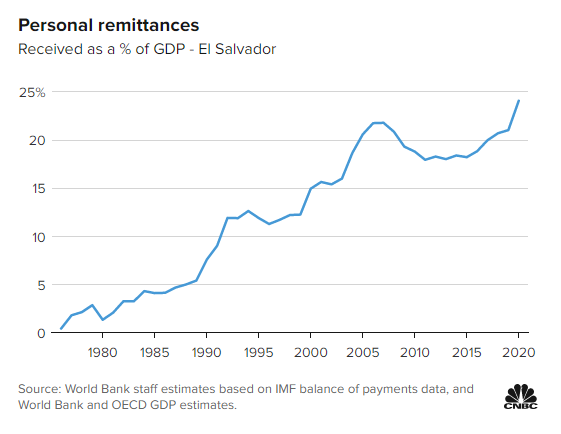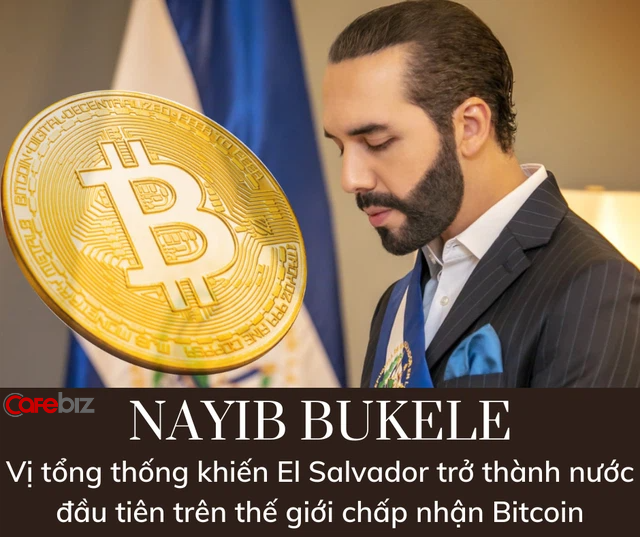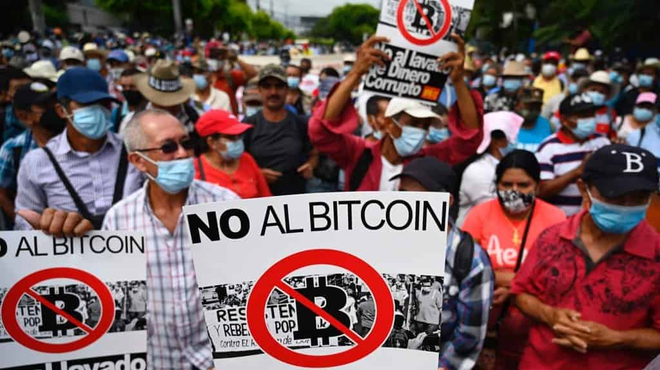What does El Salvador gain and lose by being the first country to accept Bitcoin?
- Tram Ho
According to CNBC, President Nayib Bukele of El Salvador has announced that he has become the first country to accept Bitcoin, thereby saving millions of dollars in remittance costs from abroad.
However, many El Salvadorans are quite skeptical about this decision because the Bitcoin price fluctuates quite strongly.
Please be reminded that El Salvador has no local currency. Between 1892-2001, this Central American country still used the Colon and for a long time pegged its currency to the USD.

Remittances sent to El Salvador as % of GDP
But since 2001, El Salvador has abolished the local currency, thereby officially using the US dollar in the economy for all transactions.
The country has no local currency
Every year, El Salvador receives about 6 billion USD in remittances, mostly from the US. This figure accounts for 23% of the country’s total GDP and is an important source of revenue for the Central American country.
For that reason, President Bukele thinks that accepting Bitcoin will save about $ 400 million per year in interbank transfer fees. Meanwhile, Merrill Lynch’s Mario Gomez Lozada thinks the savings could be closer to $1 billion.
Typically, El Salvadorans abroad will have to pay a fee of about 12.5% for every $100 transaction when transferring money via the Western Union app.
About 70% of El Salvadorans rely on remittances from abroad, and for many households, remittance fees sometimes equate to 50% of their total income, CNBC reports.
About 60% of this transaction fee goes to intermediary companies, about 38% goes to banks.
This is why the government of El Salvador attaches great importance to the use of cryptocurrencies to limit such remittance fees.
In addition, the use of Bitcoin will help this economy become less dependent on the US dollar, which is becoming the limit for El Salvador’s economic development when it depends on the money supply from the US for circulation.
However, according to Reuters news agency, many El Salvadorans do not trust Bitcoin because of price instability. While the World Bank (World Bank) also said that the fee for bank transfer services in El Salvador is currently the lowest in the world.

A World Bank report shows that only 30% of El Salvadorans have a bank account, and Bitcoin adoption could have a huge impact on the financial markets.
However, the above report also said that this Central American country’s Internet connection rate in 2020 is the second lowest in Latin America and the Caribbean.
Chivo e-wallet
Along with the announcement of accepting Bitcoin, the government of El Salvador also launched the Chivo e-wallet application, thereby allowing users to transfer money without fees and quickly.
However, with the low number of Internet access as well as the distrust of the people, the percentage of Chivo users is still quite low. Surveys show that two-thirds of people in this country refuse to download the Chivo app.
” This can’t be done quickly, people need time to adapt and of course people will worry about new things related to money, ” said Matt Hougan, chief financial officer of Bitwise Asset Management.
To stimulate people to use Chivo wallet, President Bukele offered to give 30 USD in Bitcoin to anyone who opens an account with this e-wallet. This is not a small number in a country with a minimum monthly income of only about 365 USD.
Meanwhile, Alex Gladstein, chief strategy officer of the HRF Foundation, told CNBC that the Chivo wallet is practically nothing more than a government-controlled bank. That means they can freeze accounts or control the source of transaction money more now in the context of the economy using USD.
“The reality is that people don’t distrust the government, they just don’t trust this newly built cryptocurrency platform, ” expert Gladstein said.

El Salvadorans protest against Bitcoin. Image source: Financial Times
People protest
Another factor that makes people not believe in the Bitcoin plan is that El Salvador will have to spend about 200 million USD to perfect the e-wallet platform, including building automatic teller machines for Bitcoin. In addition, the government will also have to spend 60 million USD for the plan to give 30 USD to every citizen who opens a Chivo wallet account.
Not stopping there, El Salvador also needs to spend $ 150 million to buy into Bitcoin reserves and according to official figures, they have spent $ 26 million on this market.
So right after the government announced the acceptance of Bitcoin, protests broke out in many places.
In addition, El Salvador’s acceptance of Bitcoin has made many other financial institutions and countries concerned about transparency as well as the risk of becoming a money laundering destination for criminals.
Immediately after El Salvador’s decision, the International Monetary Fund (IMF) expressed concern and suspended the previous loan agreement of $ 1 billion, causing the country’s bonds to depreciate sharply.
Meanwhile, a series of credit rating agencies such as Fitch Ratings or Moody’s have downgraded El Salvador’s credit rating.
Currently, El Salvador is a poor country with a high debt ratio, about 100% of GDP. The total population of the country is 6.5 million people with an economy of about 25 billion USD. Worse, surveys show that less than 5% of people understand what Bitcoin really is, while 70% of respondents oppose the government’s plan.
It is clear that in an underdeveloped economy, people still prefer to hold cash over digital currency, even if they have to pay a lot of bank fees.
*Source: Reuters, CNBC
Source : Genk
